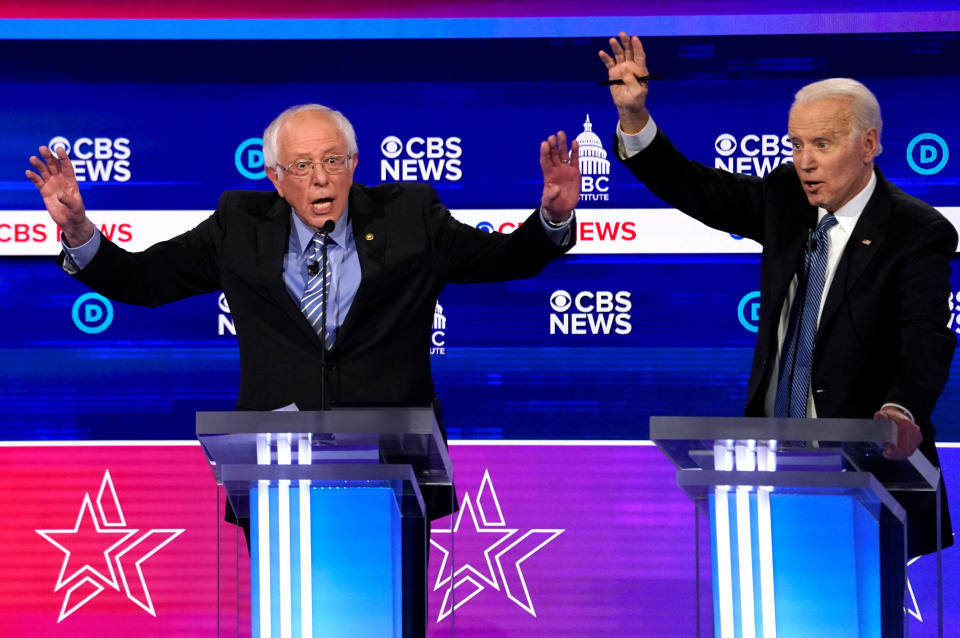How would a brokered convention work?
Political pundits love to speculate about the possibility of a brokered convention each election cycle. This time around, it looks like there is a chance it might actually happen. FiveThirtyEight’s forecast, as of Tuesday morning, shows the most likely outcome is that no one hits a majority before the convention.
Candidates are already signaling they won’t give up if no one has won a majority of pledged delegates going into the convention.
The first ballot
To win the nomination, a candidate needs to have a majority of pledged delegates. There are a total of 3,979 pledged delegates who will vote at the convention in Milwaukee this summer. A candidate has to get half those delegates (1,989.5, rounded up to 1,990), plus one. That means the magic number is 1,991.
The pledged delegates are awarded based on the caucus and primaries results.
Going into Super Tuesday, Sen. Bernie Sanders (I-VT) leads the delegate count and former Vice President Joe Biden is in second place. Former New York City Mayor Mike Bloomberg doesn’t have any delegates yet, but he skipped the early states to focus on the delegate-rich Super Tuesday states.
If no one has racked up the majority of delegates by the time the convention rolls around, things could get complicated.

Second Ballot
If no one gets 1,991 votes on the first ballot at the convention in July, delegates would move to the second ballot. This scenario is what’s known as a brokered convention. The last time a first ballot failed to produce the nominee was in 1952.
Superdelegates come into play in the second ballot. In addition to the 3,979 pledged delegates — who can now vote for a different candidate — there are also 771 superdelegates.
Superdelegates are party insiders, including members of the Democratic National Committee, Democratic members of Congress, Democratic governors and party leaders, like former presidents and vice presidents. After the 2016 election, the DNC changed the rules to only allow superdelegates to vote on the second ballot in order to reduce the influence of powerful political figures.
A candidate still has to reach a majority on the second ballot to clinch the nomination, so this time the magic number would be 2,375.5. In theory, there could be multiple votes until a candidate reaches 2,375.5.
‘The rules have been set’
During the Las Vegas debate, a moderator asked candidates if the person with the most delegates should win the nomination, even if they don’t have a majority. Only Sanders said yes.
As chatter about a brokered convention gets louder, several candidates have indicated they would fight for the nomination until the very end.
CNN’s Jake Tapper asked Biden if he would stay in the fight even if he’s in second place going into the convention.
“Yes. The rules have been set,” Biden said. “You don’t change the rules in the middle of the game.”
Bloomberg expressed a similar sentiment during an interview with NBC over the weekend. The Warren campaign put out a memo making the case that she could still win the nomination at the convention.
Jessica Smith is a reporter for Yahoo Finance based in Washington, D.C. Follow her on Twitter at @JessicaASmith8.
Read more:
New bill aims to protect medical product supply chain amid coronavirus outbreak
Nevada 2020: How the state uses 'strip caucuses' and decks of cards to pick candidates
Bloomberg's new plan to crack down on Wall Street includes a financial transaction tax
House Budget Committee Chair slams White House budget proposal
